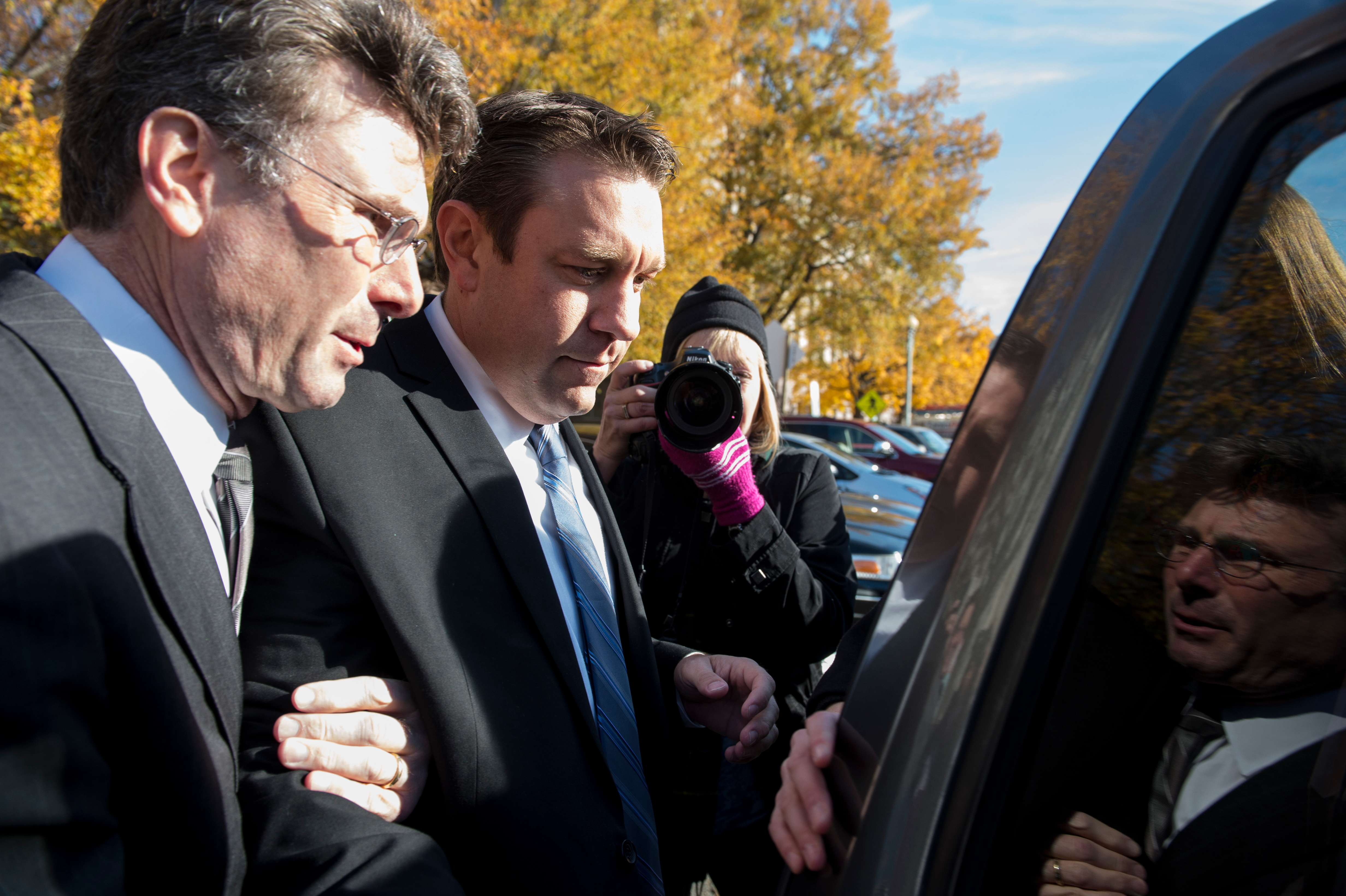Radel Dishes on His Career — and a Little About Cocaine
Former Florida congressman’s book released Tuesday

Former Florida Republican Rep. Trey Radel, who resigned after he was convicted of cocaine possession, comes clean about his short-lived career in Congress and shares a little about the drug that doomed him.
“While my deepest personal weaknesses cut short my dreams and work in Congress, I picked myself up. As individuals and a country, we can do the same,” he sums up in “Democrazy: A True Story of Weird Politics, Money, Madness & Finger Food.” The 300-page account of his life and times was released Tuesday.
[Trey Radel Sheds Coke Charges]
While in office, Radel was known as as the “hip-hop conservative.” The book is spotted with quotes and lyrics, often from rappers such as Drake and Kendrick Lamar.
He opens with his take on the state of the Republican Party and stresses that he is a libertarian. He discusses his journalism career, his time working in Florida talk radio, and how former GOP Rep. Connie Mack encouraged him to run for Congress in 2011 when Mack ran unsuccessfully for the Senate.
Radel doesn’t hold anything back, running through a checklist of embarrassing things that could come back to bite you in a congressional campaign. (“Send a dick pic?” he asks.)
He speaks candidly about his relationship with everyone from former House Speaker John A. Boehner and Majority Leader Kevin McCarthy (he writes favorably of both) to his former Florida colleague Ted Yoho, described as a “tea party wacko.”
Of recent events in Congress, he gives his take on the 2010 health care law: “President Obama’s policy frustrated me deeply, but I also felt the man himself had let me down.”

On his personal life, he writes about meeting his wife, his relationship with his parents and his love of travel, which included a few risque stories.
Radel shows flashes of humility as he tries to share how much he learned running for Congress, what he did in Congress, and what he’s done since leaving.
“Hell, maybe you’ve already burned this book or vomited on the pages in disgust,” he writes after discussing his relationships with Boehner and former Majority Leader Eric Cantor.
[Trey Radel Sticks His Nose Back Into Politics]
He shares some D.C. secrets about fundraising, staffing a congressional office, choosing and getting on a committee, and navigating the media. He writes that he had Democratic friends, including former Florida Rep. Patrick Murphy, Arizona Rep. Kyrsten Sinema, and Hawaii Rep. Tulsi Gabbard.
About halfway through the book, he finally gets into his relationship with some other “friends” in Washington: those he partied with.
“Washington is the nerdiest sexy city in the world,” he writes as he jumps into describing his social life.
Through the rest of the book, he writes about his partying. But, he doesn’t use the word “cocaine” or say he was doing drugs until he writes about the drug bust.
His “socializing,” which was often on weeknights in Dupont Circle, and the acquaintances he made off Capitol Hill are major themes toward the end of the book. And, of course, his drug bust and how one of his “friends … set me up.”
Radel speaks earnestly about the eventual lack of attention to his wife and child in Florida and how selfish he became.
The guilt-filled aftermath includes him telling Boehner of his arrest, going to rehab, dealing with depression, and a scene in which he describes former Florida Rep. Steve Southerland II making him pray with him.
He briefly mentions his resignation before jumping into the lessons he learned from the experience. What it comes down to, he says, is that members of Congress are, more often than not, good people trying to do a good job.





